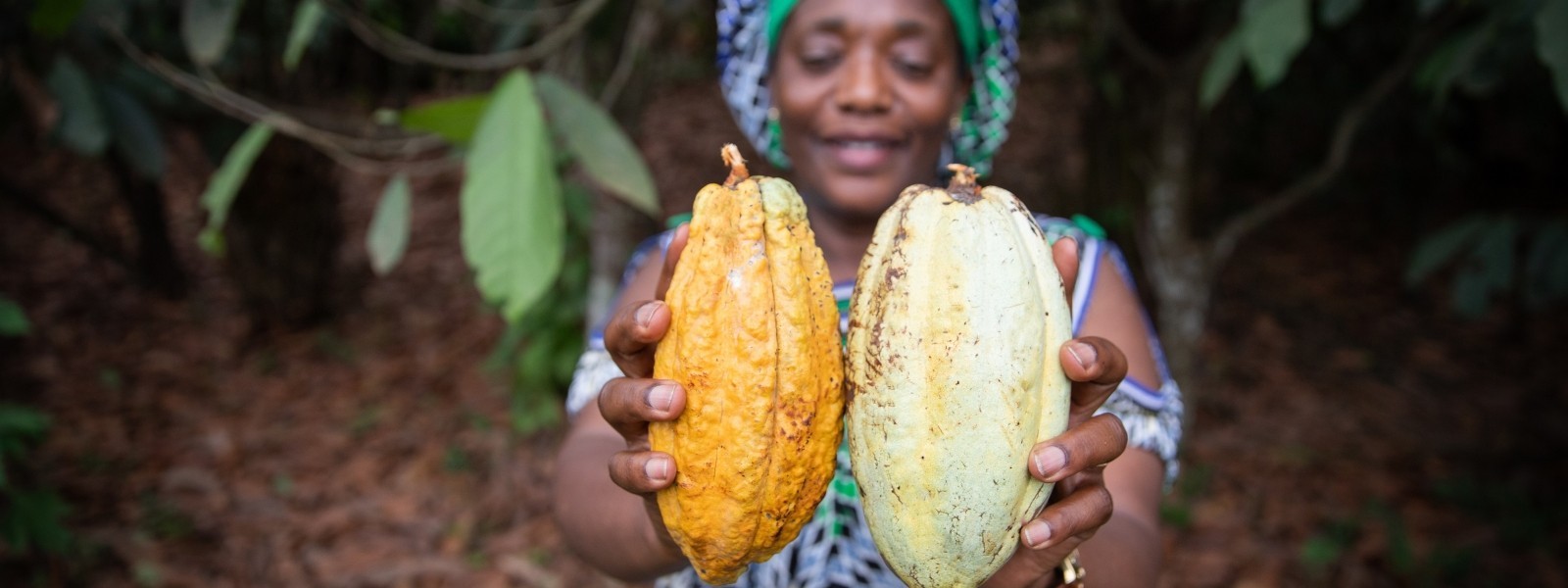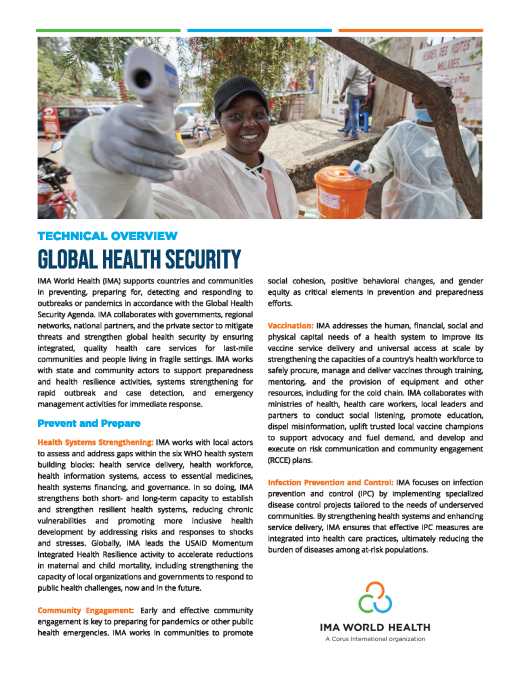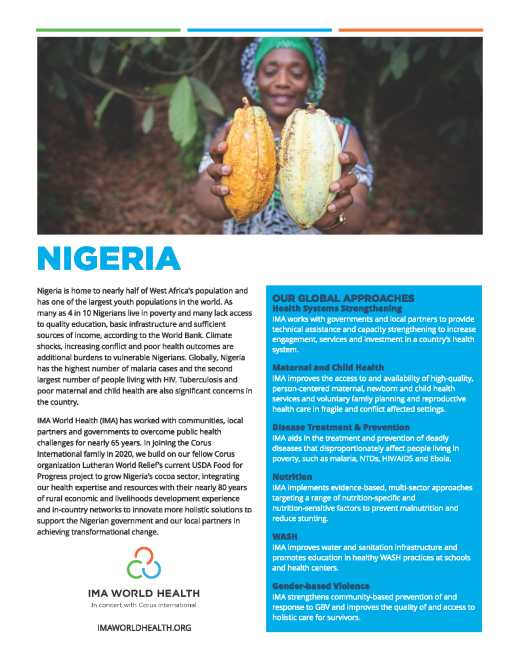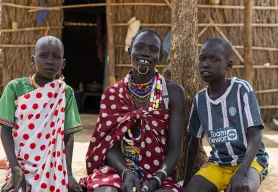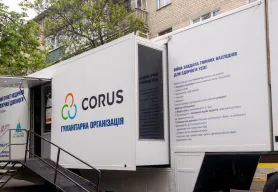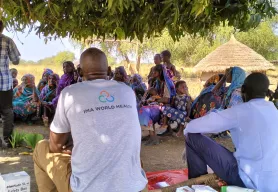Nigeria is home to nearly half of West Africa's population and has one of the largest youth populations in the world. As many as 4 in 10 Nigerians live in poverty and many lack access to quality education, basic infrastructure and sufficient sources of income, according to the World Bank. Climate shocks, increasing conflict and poor health outcomes are additional burdens to vulnerable Nigerians. Globally, Nigeria has the highest number of malaria cases and the second largest number of people living with HIV. Tuberculosis and poor maternal and child health are also significant concerns in the country.
IMA World Health has worked with communities, local partners and governments to overcome public health challenges for nearly 65 years. In joining the Corus International family in 2020, we build on our fellow Corus organization Lutheran World Relief's current USDA Food for Progress project to grow Nigeria's cocoa sector, integrating our health expertise and resources with their nearly 80 years of rural economic and livelihoods development experience and in-country networks to innovate more holistic solutions to support the Nigerian government and our local partners in achieving transformational change.
Global Project Highlights
IMA World Health partnered with the Africa Christian Health Associations Platform (ACHAP) to support a COVID-19 response by the Christian Health Association of Nigeria (CHAN). Activities
implemented included sharing targeted information for health care workers, religious leaders and community members, providing equipment and supplies to implement infection prevention and control in health care facilities, and supporting surveillance, referrals and home-based care. IMA also helped CHAN engineer bore holes to ensure a clean and reliable water supply of 10 of its hospitals.
IMA World Health leads the five-year, USAID-funded MOMENTUM Integrated Health Resilience program, which is part of a suite of innovative MOMENTUM awards designed to holistically strengthen quality voluntary family planning, reproductive health, and maternal, newborn, and child health in host countries around the world including DRC, Burkina Faso, Mali, Niger, South Sudan, Sudan, Tanzania and Yemen. Working alongside local organizations, governments, and humanitarian and development partners in fragile settings, the project helps accelerate reductions in maternal, newborn, and child illness and death by increasing the capacity of host country institutions and local organizations—including new and underutilized partners—to introduce, deliver, scale up, and sustain the use of evidence-based, quality care.
In the DRC, MOMENTUM Integrated Health Resilience collaborated with the Ministry of Health (MoH), the USAID Routine Immunization Transformation & Equity (MRITE) initiative, and other partners to support and introduce the rollout of the COVID-19 vaccine in North Kivu. The team worked closely with the Ministry of Health and local partners to develop an Emergency Communication Plan to promote acceptance and uptake of the COVID-19 vaccine in North Kivu among the Ministry of Health's priority target populations. The team also conducted rapid mobile/online surveys and interviews with health care workers, Ministry of Health personnel, and community influencers to assess their knowledge, training needs, sources of information, acceptance, and perceived risks of the COVID-19 vaccine. The activity also supported the Ministry of Health in monitoring and analyzing social listening as well as in identifying and utilizing trusted local vaccination champions to manage misinformation, develop an risk communication and community engagement (RCCE) plan, and drive local vaccine demand. Additionally, the activity strengthened the surveillance of adverse events following immunization (AEFI) to enhance the safety of vaccine use and maintain public confidence in the vaccination program.
During eight years of implementation, ASSP and its follow-on project ASSR improved the health of women, adolescents and children through support for disease prevention, delivery of health care and health systems strengthening. With funding from the UK’s Foreign, Commonwealth & Development Office (FCDO), the projects supported an estimated 9.7 million people across 52 health zones in five provinces, strengthening the health system by focusing on priority interventions such as the treatment of malaria, pneumonia and diarrhea; nutrition; obstetric and neonatal care; family planning; immunization; and water, sanitation and hygiene (WASH). Using an approach based on the World Health Organization’s six pillars of health systems strengthening, the projects collaborated with the Ministry of Health (MOH) at all levels of service delivery, including the national and provincial levels and with focused support to health zones, health facilities and communities. The projects allowed for 2.23 million births to be attended by skilled health personnel at health facilities. More than 13 million nets were hung through bed net campaigns. 286 health centers were built, including 109 newly constructed health centers during ASSP. 4.78 million children were screened for malnutrition and over 1.35 million pregnant women and children under five received direct and intensive nutrition interventions. Because measles outbreaks are frequent and a leading killer of young children in the DRC, IMA World Health also vaccinated more than 2 million children under the age of five against measles throughout the duration of ASSP and ASSR. Additionally, the projects promoted and strengthened the open-source health data management system DHIS2 to improve data dissemination and to improve decision-making for health service delivery.
Funded by the U.S. Department of Agriculture's Food for Progress Program and led by IMA's fellow Corus organization Lutheran World Relief, TRACE is a five-year project that improves Nigeria's cocoa productivity through climate-smart agriculture and expands its traceability for stronger marketability. In partnership with the federal and state governments of Nigeria, the International Institute of Tropical Agriculture (IITA), the Cocoa Research Institute of Nigeria (CRIN), Ecometrica, and C-Lever.org, Lutheran World Relief implements TRACE in Nigeria's cocoa-producing states of Abia, Akwa Ibom, Cross River, Ekiti, Ondo, and Osun States. By the end of the project, over 51,000 smallholder farmers will be trained, resulting in a doubling of cocoa productivity and establishing a comprehensive (farm-to-export) traceability system that meets global standards. More than 68,400 farmers will gain access to markets, and over 366,000 hectares of farmland will be under improved climate risk reduction and/or natural resource management practices.
The Corus Effect
Founded in 1960, IMA World Health is part of Corus International, an ensemble of long-serving, global leaders in international development and humanitarian assistance committed to ending poverty and building healthy communities across Asia, Latin America and the Caribbean, the Middle East, and Africa.
In addition to IMA World Health, the Corus family includes global aid and development organization Lutheran World Relief, U.K.-based technology for development company CGA Technologies, impact investing firm Ground Up Investing, and direct trade company Farmers Market Brands.
Alongside communities and local partners in fragile settings, our dedicated experts across our organizations integrate disciplines, approaches and resources to overcome global health challenges, develop productive and stable economies, improve resilience in the face of climate change, and respond to natural disasters and humanitarian crises. We invest in solutions that are innovative, scalable, holistic and move the needle towards transformational change.


